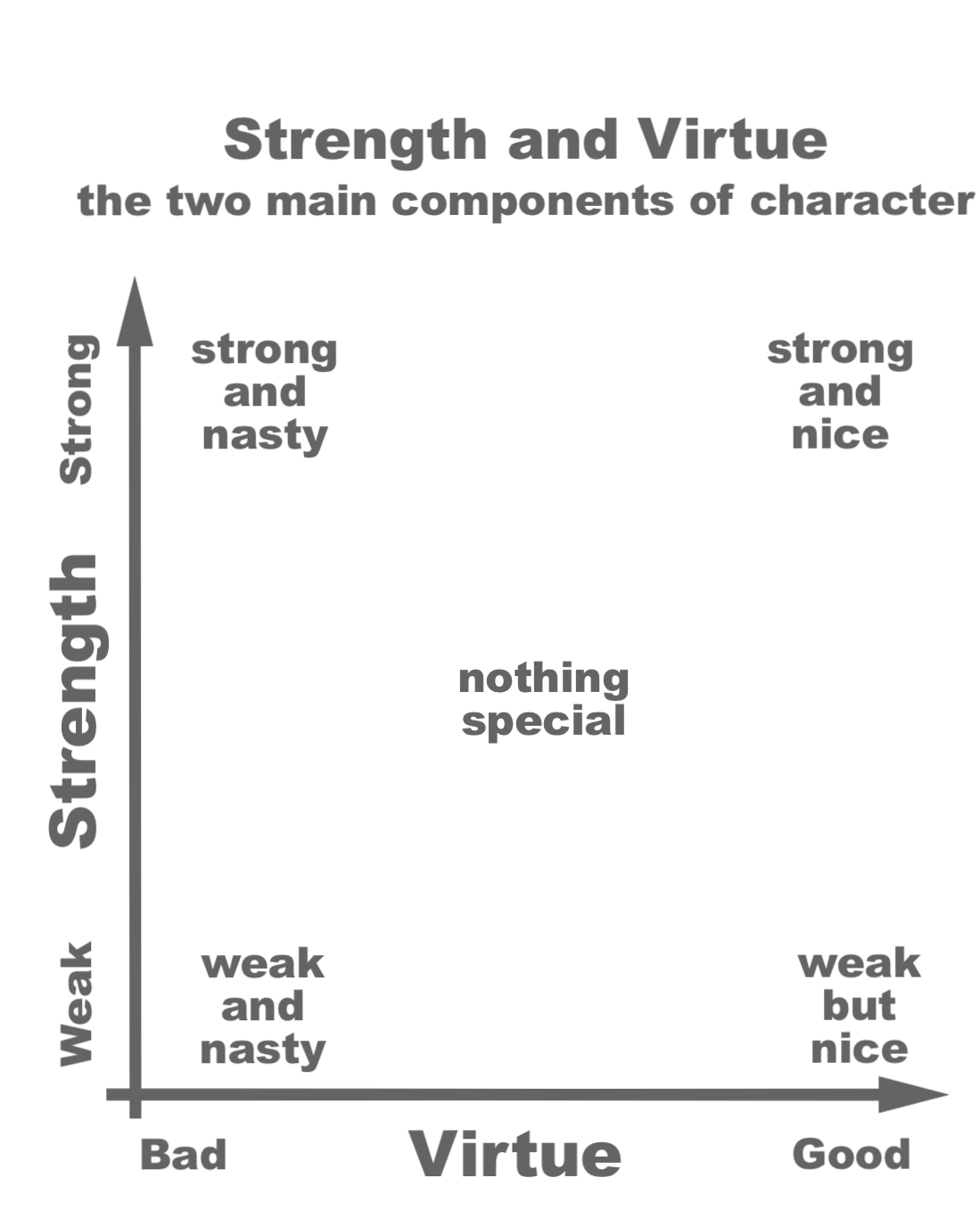The Basis
To survive as a species, humans need to act in certain ways.
If they don't their genes are lost.
Here is what humans have to do:
- Stay alive,
- Reproduce.
And fearing death above anything else.
Reproducing means being motivated to find and couple with the best mates possible.
You might call this eugenics, but who wants ugly, stupid, sickly children? By the same token, almost all the plants and animals used by humans are the results of long and careful genetic selection by them.
Nature Versus Nurture
If you put hen's eggs in an incubator, the chicks that hatch will start to behave exactly as chickens always have. It's all nature and no nurture. Chickens have no culture. All their complicated patterns of behavior are instinctive, not learned. It's all ex ovo.Human beings have culture, but how far does it go?
Not far, in my opinion.
There are two schools of thought about this:
- the Standard Social Science Model (almost all behavior is learned),
- Evolutionary Psychology (almost all behavior is instinctive).
I tend to favor Evolutionary Psychology (also
called Sociobiology), it makes more sense to me.
There is a very good book about this called Why
Beautiful People Have More Daughters by Miller and
Kanazawa, you can get it on Amazon
(for instance).
This is another good book on the
subject.
Good and Evil
The individual cannot prosper without the support of the group,and the group cannot prosper without the support of the individual.
To survive, humans sometimes need support
(when attacked, young or sick, for instance).
For an individual to get support, others must provide it.
In human society, for the individual and the group to prosper, there needs to be a reasonable balance between receiving and giving support.
Those who take more than they give are evil, bad, selfish etc.
Those who give more than they take are good, altruistic, compassionate etc.
Evil helps the individual.
Good helps the group.
To quote Charles Darwin:
A tribe including many members who, from possessing in a high degree the spirit of patriotism, fidelity, obedience, courage, and sympathy, were always ready to aid one another, and to sacrifice themselves for the common good, would be victorious over most other tribes; and this would be natural selection.
Morality, that is to say the essence of goodness, is embodied in the Golden Rule.
Which can be expressed as treat others as you would have them treat you.
The Golden Rule is a feature of many religions.
It appears to me that understanding good and evil is instinctive.
The Virtue versus Strength balance in the individual Virtue and strength do not cancel each other out but lead to blends in each individual that characterize their basic personality.
This is shown in the following diagram:

"Strong and nasty" in the top left-hand of the chart corresponds to the sort of person that you don't want to be involved with: the sociopath, the boss from hell etc.
"Strong and nice" in the top right-hand of the chart corresponds to the sort of person you do want to involved with: someone you can rely on, the good knight who protects damsels etc.
"Weak and nasty" corresponds to a despicable type of person: strong with the weak and weak with the strong, the bully, the drug pusher, nasty very nasty.
"Weak but nice" corresponds to the ineffectual person that wants to do good but is easily pushed aside.
Another important characteristic is intelligence. Above-average intelligence makes all the above more effective in getting what they want. This makes the intelligent strong and nasty person a dangerous companion as it tends to be highly duplicitous.
Fear of Death
Fear of death is a powerful factor in
preserving the race, but for the individual it is a hard
thing to manage.
There is an Ancient Greek story
where a goddess grants a wish to a mother who asks for the
best possible thing for her two sons. They went to sleep
that night and never woke up. Also, the god Silenus was
said to have secret knowledge that the best thing is to
never be born.
When young, we are hopeful, attractive,
healthy and cherished (with luck).
When old, we are none of that.
It would make
sense to just give up, but fear of death prevents it.
Nietzsche wrote, “The Greeks knew and
felt the terrors and horrors of existence; in order to live
at all, they had to place in front of these things the
resplendent, dream-born figures of the Olympians.” In his
view, culture is a coping mechanism that veils unfortunate
truths with a fabricated optimism.
This culture as a coping mechanism has
recently been named Terror Management
Theory (TMT) and has been extensively studied. Here is
a partial quote from the Wikipedia article at the above
link: Self-esteem lies at the
heart of TMT and is a fundamental aspect of its core
paradigms. TMT fundamentally seeks to elucidate the causes
and consequences of a need for self-esteem. Theoretically,
it draws heavily from Ernest Becker's conceptions of
culture and self-esteem.[19][20] TMT not only attempts to
explain the concept of self-esteem, it also tries to
explain why we need self-esteem.[21] One explanation is
that self-esteem is used as a coping mechanism for
anxiety. It helps people control their sense of terror and
nullify the realization that humans are just animals
trying to manage the world around them. According to TMT,
self-esteem is a sense of personal value that is created
by beliefs in the validity of one's cultural worldview,
and the belief that one is living up to the cultural
standards created by that worldview.[21]
Social standing (pecking order)
In chickens, pecking order determines which
chicken can peck another without fear of retaliation (more here). In
humans, desire for status is very strong, and many will do
almost anything to become famous. I remember what a person I
used to know who had had a road accident and was lying
wounded said to me: "It was wonderful, everybody was looking
at me".
High social status offers better access to
quality sexual partners and resources. This type of
behaviour is biologically selected for as those with it will
tend to have more descendents.
Conclusion
For the human race to exist, humans need to survive and reproduce, so humans instinctively:- fear death,
- want sex.
For a community to prosper, in it there needs to be an appropriate balance between:
- what is good for the community,
- what is good for the individual.
Moral behaviour is just a much inborn as selfish behaviour.
Humans (like other social animals) instinctively seek to maximise their social standing.
Back to The Two Sides of Mithras…
